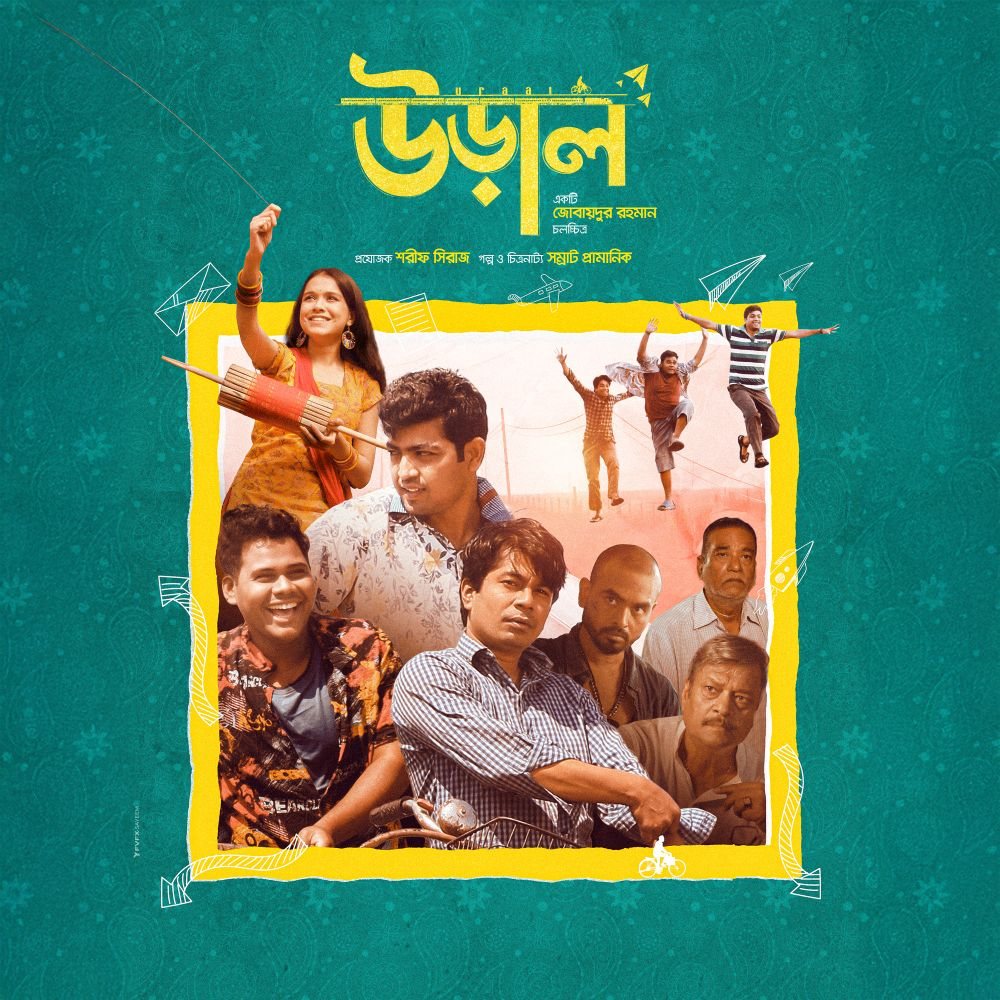Jobaidur Rahman’s debut feature, Uraal, opens with a quiet assurance that’s rare in first films. Released on August 1, 2025, this understated drama about three friends in North Bengal isn’t here to overwhelm with plot twists or spectacle—it’s here to sit with you, watch life unfold, and let the small heartbreaks land.
Set in Saidpur and Parbatipur, the film follows Bachchu (Santa Chandra Sutradhar), Ronju (Sohel Toufiq), and Moti (Mahafuz Munna)—three childhood companions whose easy camaraderie and shared dreams form the story’s emotional anchor. When Ronju falls for Kumkum (Kabyakatha), the daughter of local strongman K M Abrur Razzaque, the ripple effects are slow but seismic. Loyalties are tested, unspoken tensions surface, and the fragile bonds of youth start to splinter.
Working from a story, screenplay, and dialogue by Samrat Pramanik, Jobaidur keeps the narrative deceptively simple—so simple, in fact, you might not realize how carefully the beats are placed until after the credits roll. The film’s central question—why do childhood friends grow apart?—is hardly new, but here it’s posed without sentimentality or easy resolution.
The authenticity is the film’s beating heart. Jobaidur leans into the specifics: the Rangpur dialect, the provincial architecture, the dust that hangs in the air during the golden hour. Cinematographer Ebad Aleem captures these details with a soft naturalism that makes you feel you’ve walked these streets yourself.
The casting is equally inspired. Santa Chandra Sutradhar, Sohel Toufiq, and Mahafuz Munna bring a relaxed, lived-in chemistry that makes their eventual rift genuinely painful to watch. Kabyakatha, in her debut, is a quiet revelation—poised, restrained, and utterly believable. Pairing her with her real-life mother, Korobi Dash, adds a warmth and authenticity to their scenes that no amount of rehearsal could fake.
And then there’s Khaiyyam Sanu Sandhi’s score—rooted in folk traditions but layered with modern instrumentation—that deepens the film’s emotional currents without overpowering them.
For all its sincerity, Uraal isn’t flawless. The pacing, especially in the first act, occasionally lingers too long on atmosphere, which risks testing the patience of viewers used to faster storytelling. Some supporting roles, especially that of the local power brokers, feel underwritten. K M Abrur Razzaque’s character exudes presence, but we never fully grasp his inner world—he remains more a looming archetype than a fleshed-out antagonist.
The climactic fracture between the friends, while affecting, arrives almost too quietly. A slightly sharper emotional crescendo could have given the narrative a stronger sense of payoff. For Example – Moti, the newspaper hawker, is an intriguing presence but remains frustratingly unexplored. All three friends seem caught in a dreamlike state, chasing trains as though they might outrun reality, chasing love as though it were the only thing worth holding onto. Bacchu’s quiet love for Kumkum is no secret—Ronju knows it—so Ronju’s sudden elopement with her feels less like romance and more like a silent betrayal. Yet after Ronju’s abrupt and tragic death, Bacchu’s story is left incomplete. We see him protesting alone against what seems to be his friend’s murder, while the world moves on around him. Kumkum, too, disappears into silence after the loss, leaving the aftermath of the brutal honour killing unresolved.
This ending leaves an odd taste—not because it is bad, but because it is strangely incomplete. It’s like sitting down at a Chinese restaurant, enjoying a spread of delicious starters, only to realise you are full before the main course arrives. You can’t complain about the flavours—they were good—but you also can’t help feeling you missed the heart of the meal. That’s how Uraal left me: satisfied in parts, but longing for the emotional fullness it promised early on.
And yet, the film stays with you. Beneath its local story lies a quiet political echo, reflecting the spirit of youth-led protests and the pushback against deep-rooted authority in Bangladesh. Jobaidur never makes this message obvious or heavy-handed, but it runs under the surface, giving the film an extra layer of meaning. For a debut, this blend of personal and social storytelling is ambitious. Not every thread is tied neatly, but it shows a director willing to take risks and trust the audience to fill in the gaps.
On a technical level, the film’s budgetary constraints peek through at times—certain shots feel visually flat, and in a few crowded sequences, the sound mix makes dialogue hard to catch. These moments don’t sink the film, but they do remind you of its modest scale.
What makes Uraal linger is how its small, local story mirrors a larger national mood. The youth-led defiance against entrenched authority—woven subtly through the narrative—echoes the recent protest movements in Bangladesh. Without turning preachy, Jobaidur positions his characters in a way that speaks to both personal and generational struggles.
This fusion of the intimate and the political is ambitious for a debut. Not every thread lands perfectly, but the attempt signals a filmmaker with both something to say and the patience to say it in his own way.
Uraal is not a perfect film, but it is an honest one. Its imperfections—slightly slack pacing, thinly drawn antagonists—are outweighed by its sincerity, grounded performances, and evocative sense of place. It trusts small, human moments to carry its weight, and more often than not, they do.
If you go in expecting fireworks, you might leave restless. But if you settle into its quiet rhythms, you’ll find a story that speaks softly and stays with you—a small, independent film that believes in the power of friendship, even when it breaks.
Abu Shahed Emon, Filmmaker


